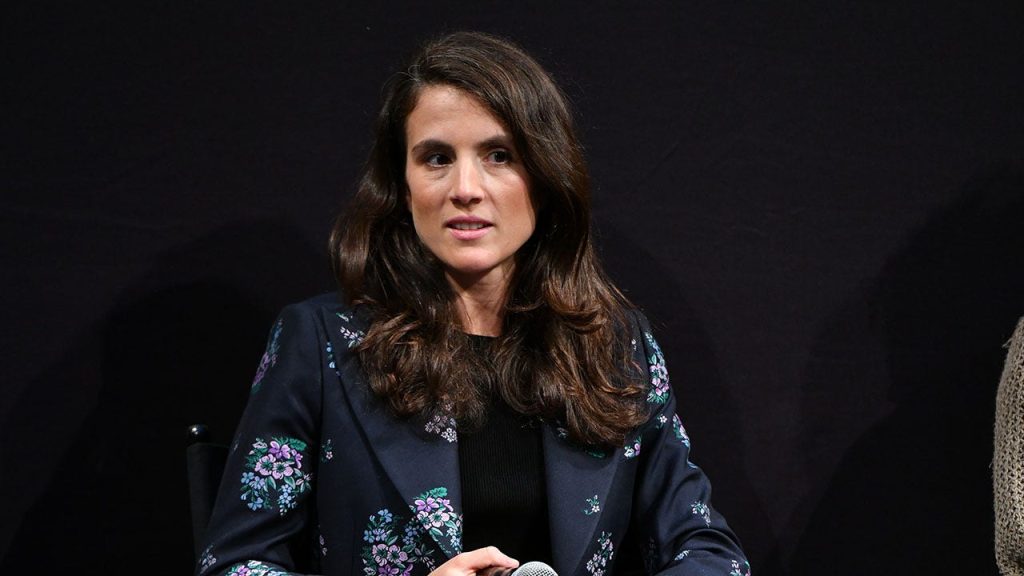A Kennedy Granddaughter Faces Her Final Chapter with Courage
In a heart-wrenching essay published in The New Yorker on November 22nd—precisely 62 years after President John F. Kennedy’s assassination—his 35-year-old granddaughter Tatiana Schlossberg revealed she has terminal cancer. The daughter of Caroline Kennedy disclosed her battle with acute myeloid leukemia, which includes a rare mutation called Inversion 3. Diagnosed shortly after giving birth to her daughter in May 2024, doctors have now told her she likely has about a year to live. The revelation comes with profound emotional weight as Schlossberg confronts her mortality while caring for two young children who may not remember her. “My first thought was that my kids, whose faces live permanently on the inside of my eyelids, wouldn’t remember me,” she wrote, describing how her son might retain a few memories that will eventually blend with photographs and stories, while her infant daughter barely knows her as a mother.
What makes Schlossberg’s diagnosis particularly shocking is that she felt perfectly healthy before receiving the devastating news. “I did not—could not—believe that they were talking about me,” she recalled of her initial diagnosis. “I had swum a mile in the pool the day before, nine months pregnant. I wasn’t sick. I didn’t feel sick. I was actually one of the healthiest people I knew.” Her cancer, typically seen in older patients, prompted doctors to repeatedly ask if she had spent time at Ground Zero in New York City—which she hadn’t. The months that followed became a grueling medical journey: intensive chemotherapy to reduce blast cells in her bone marrow, a bone marrow transplant with her sister’s help, a brief period of remission during which she had no immune system and needed to receive all her childhood vaccines again, followed by a heartbreaking relapse. Her doctor bluntly explained that leukemia with her particular mutation “liked to come back.”
The beginning of 2024 brought new hope through a clinical trial of CAR-T-cell therapy, a promising immunotherapy for blood cancers, followed by another round of chemotherapy and a second blood transfusion from an unrelated donor. Yet despite these extensive interventions, her doctor delivered the sobering prognosis that he could likely keep her alive for only about a year. Adding to her medical concerns, Schlossberg expressed worry about the healthcare system she depends on following her cousin Robert F. Kennedy Jr.’s nomination as Secretary of Health and Human Services, whom she called an “embarrassment.” She wrote that doctors and scientists at Columbia Presbyterian hospital, including her husband George, suddenly faced uncertainty about continuing their research or even maintaining employment, making the healthcare system she relied upon feel “strained, shaky.”
Throughout her ordeal, Schlossberg has drawn strength from her family, who have sat by her bedside during treatments and helped care for her children. She speaks with particular tenderness about her husband, urologist George Moran: “he is perfect, and I feel so cheated and so sad that I don’t get to keep living the wonderful life I had with this kind, funny, handsome genius I managed to find.” Her brother Jack Schlossberg, currently running for Congress in New York, responded to her essay with a poignant Instagram post: “Life is short, let it rip.” Her mother’s cousin, Maria Shriver, shared the essay, describing Tatiana as “a beautiful writer, journalist, wife, mother, daughter, sister, and friend,” and urged everyone to read her “extraordinary piece of writing.”
The Kennedy family is no stranger to tragedy, which makes Schlossberg’s diagnosis all the more poignant. “For my whole life, I have tried to be good, to be a good student and a good sister and a good daughter, and to protect my mother and never make her upset or angry,” she wrote. “Now I have added a new tragedy to her life, to our family’s life, and there’s nothing I can do to stop it.” The family’s well-documented history of loss includes the assassinations of both President Kennedy and his brother Robert F. Kennedy Sr., the deaths of two siblings in infancy, the 1999 plane crash that took JFK Jr.’s life, and the loss of Jacqueline Kennedy Onassis to non-Hodgkin lymphoma in 1994 when she was 64. This latest chapter of illness adds to the Kennedy legacy of enduring public tragedy with dignity and grace.
In the closing of her essay, Schlossberg reflects on how she now lives primarily to be present with her children, though she admits that “being in the present is harder than it sounds.” She describes how memories from her own childhood now intertwine with watching her children grow, creating a strange temporal overlap in her consciousness. With remarkable philosophical depth, she writes, “Sometimes I trick myself into thinking I’ll remember this forever, I’ll remember this when I’m dead. Obviously, I won’t. But since I don’t know what death is like and there’s no one to tell me what comes after it, I’ll keep pretending. I will keep trying to remember.” These final words reflect not just the personal struggle of one woman facing terminal illness, but also capture the universal human desire to hold onto life’s precious moments even as they slip away—a sentiment that transcends politics and privilege to touch on our shared mortality and the love that makes that mortality both bearable and unbearable all at once.


